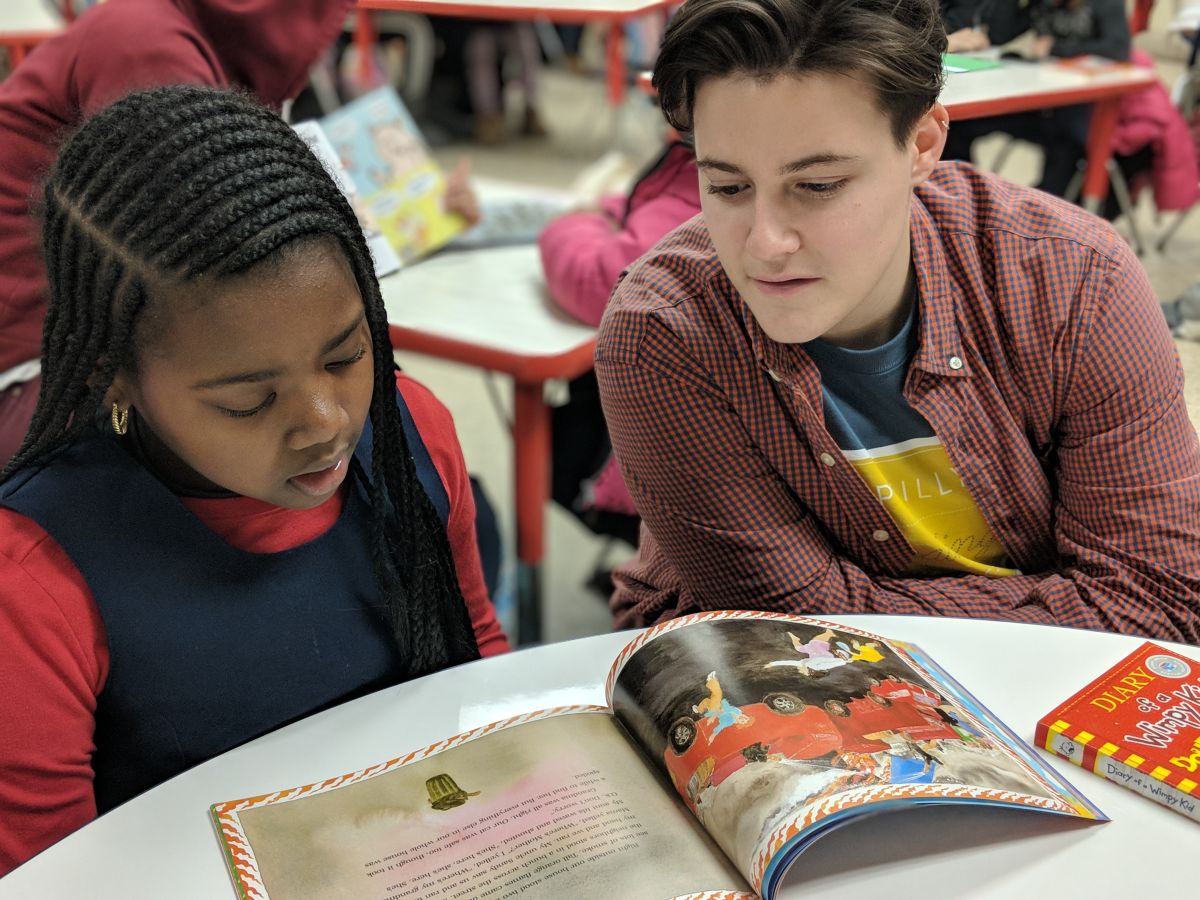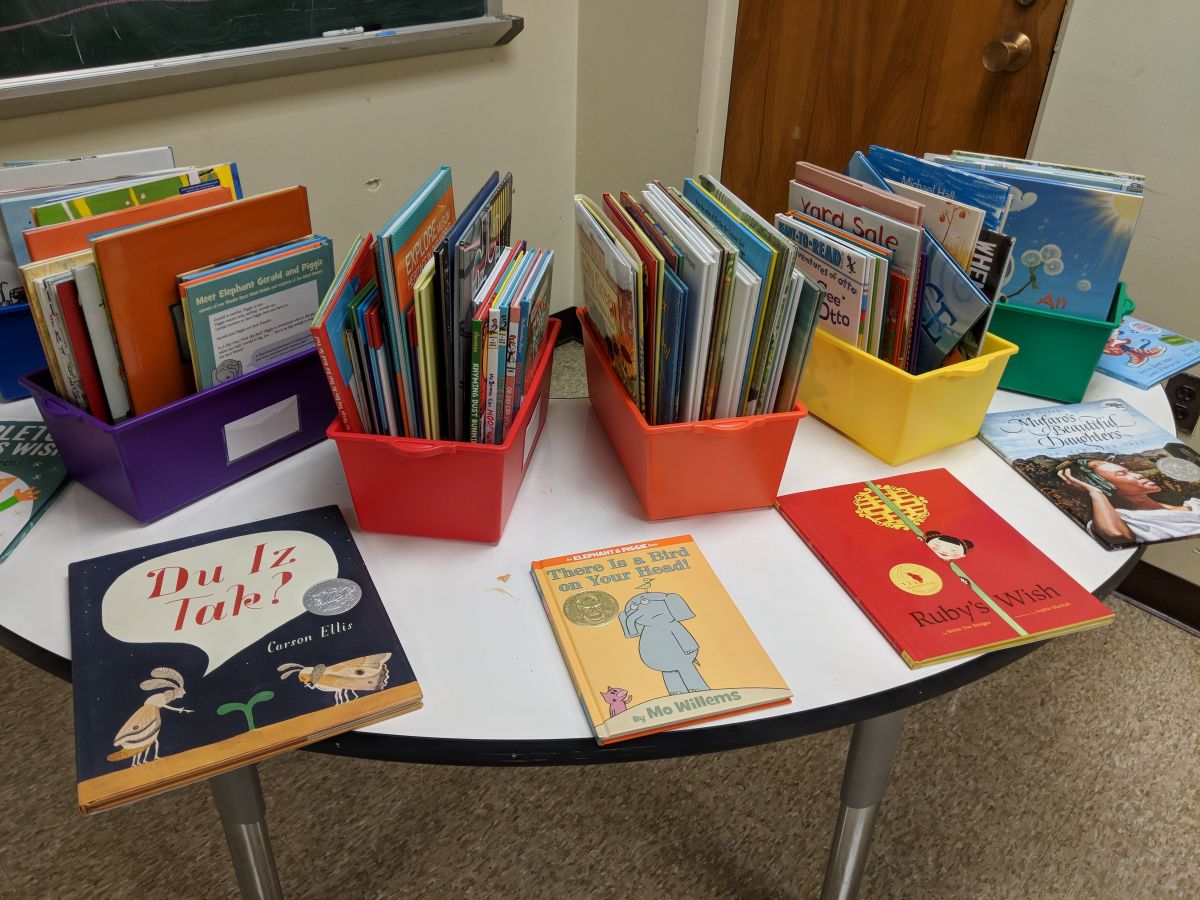Blog
After the bell rings, Philly Reading Coaches take the lead
In September 2017, it was announced that the biggest gains in Philadelphia’s PSSA scores were in 3rd and 4th grade English Language Arts. This achievement highlights the success of the District’s early literacy initiative, the citywide early literacy campaign, Read by 4th, and the work of schools, teachers, city agencies, parents, and community groups across Philadelphia. To continue building on the success and momentum generated by this work, stakeholders across the city see after school time as a key opportunity for continued student learning and development. The launch of the citywide out-of-school time (OST) initiative aims not only to expand opportunities for high quality programming, but increase the number of youth that reach their full potential.
We recently sat down with Christine Piven from the City of Philadelphia’s Office of the Managing Director to discuss Philly Reading Coaches, a bold new approach to out-of-school time programming seeking to impact 800 Philadelphia students and the communities in which they live.

Photo courtesy of the City of Philadelphia
Philadelphia is focused on getting more children to read on grade level by 4th grade, and Philly Reading Coaches is an exciting new effort that will contribute to that goal by connecting 400 volunteer reading coaches with more than 800 students to engage them in fun and enjoyable one-on-one reading activities. Tell us about the impact you hope this program will make and how you will know if it’s making a difference.
We have an ambitious agenda for Philly Reading Coaches from launching the program to understanding its impact. We’ve hired MDRC, a top-tier research and evaluation organization, to help us examine the implementation and success of this program. High on our to-do list is to provide an understanding of the impact of this program on the students, from reading level change to increases in reading enjoyment and confidence. In addition, we will be looking at how volunteers feel about the program and their experiences working in their communities. The last key piece is improving our operational understanding of this program and what refinements need to be made to ensure the program is a good fit for OST providers, and to make sure Philly Reading Coaches is situated in sites with the highest factors for success.
The city of Philadelphia is working to improve out-of-school time (OST) programming and increase the number of students these programs can serve. How does Philly Reading Coaches fit in with the city’s larger goal?
The Citywide OST Initiative has many clear goals set for the next two years. Philly Reading Coaches creates an opportunity to test, refine, and launch an early literacy OST intervention that touches several of the city’s goals around quality programming, community engagement and partnerships.
- Quality Programming: One of the goals is to create quality, research-based OST activities or models with measurable literacy outcomes that are also affordable enough to be replicated city-wide. Philly Reading Coaches is an adaptation of the Oregon-based SMART model, an evidence-based one-on-one volunteer early literacy intervention that has shown to help children improve their reading skills.
- Community Engagement: Another goal is to build an OST system that encourages civic engagement. SMART engages 5,000 volunteers each year to participate in their program. These volunteers read one-on-one with children and help manage program sites. These deep partnerships with volunteers make it possible to build an early literacy intervention that is not just evidence-based but also affordable. We would like to see similar levels of volunteer involvement here in Philadelphia.
- Partnerships: One of the goals is to develop deeper partnerships and build new ones. In addition to the volunteers, Philly Reading Coaches is supported by and aligned with the larger Citywide OST Initiative, Philadelphia’s Parks and Recreation and the Department of Human Services, OST providers, the Read by 4th campaign, and the School District of Philadelphia. We recognize that no single entity is going to address the need for high quality literacy and rich OST experiences, thus we are working together to provide this to all children. As we move into implementation and the launch of the pilot in January 2018, we are working closely with these partners to identify sites, an appropriate pool of students, book selections, and tools to measure our impact.
As you mentioned, Philly Reading Coaches is based on the Start Making a Reader Today (SMART) program. Why did this program seem like a good match for Philadelphia?
SMART has many features that made it attractive to the Citywide OST Initiative. Three, however, stood out for us.
- SMART is a program that focuses on reading enjoyment and motivation. We wanted a model that would support the deep literacy efforts that are happening in-school and support the various goals of OST providers, a central goal of which is to provide opportunities for growth, learning and fun. As implemented in Philadelphia, the SMART model will be applied in the out-of-school time hours as a complement to the strong programming already offered by OST providers.
- SMART provides each child books to take home. This aspect of the program aligns with one of the bold goals of the City’s Read by 4th Campaign—that every child has a personal home library with books that are at their reading level.
- SMART is a state-wide program that uses trained volunteers to carry out their work. The use of volunteers allows us to connect with another Read by 4th goal - that every child has access to free reading tutoring in their neighborhood. Additionally, the heavy emphasis on volunteers allows the Citywide OST Initiative to move toward one of our long-term goals which is to contribute to creating Philadelphia as the most civically engaged community in the country.
One of the primary goals of Philly Reading Coaches is that participating students grow their reading skills. Can you tell us more about the types of experiences and benefits students can expect to gain in Philly Reading Coaches?
We are pleased to be basing our work on the SMART model because it is both research-based and child-centered. SMART increases children’s excitement and confidence in reading by providing a fun, child-guided experience. SMART achieves this through its training of volunteers by promoting an equitable and inclusive environment. For example, the training helps volunteers recognize their own assumptions about gender by asking volunteers to consider that girls might enjoy books about trucks while boys may want to read a fairy tale. In addition, SMART is thoughtful about the books that are offered to the children—first they must be of high interest to the child. Thus, volunteers track the books children take home so adjustments can be made to the book selection. Also, the books provided reflect the children who are in the program, as well as open windows into other cultures and experiences.

Photo courtesy of the City of Philadelphia
Philly Reading Coaches works by pairing trained volunteers with young students. While this program is intended to focus on the students, we imagine it will be an incredible learning experience for the volunteers in the program as well. What do you anticipate the experience will be like for them?
This model works with volunteers as young as 8th grade, so we are plugging into schools near the Philly Reading Coaches’ sites. We are also reaching out to senior centers, hoping some elder members of our community will want to volunteer as well. Volunteers will have opportunities to connect with other volunteers in the program, and we look forward to building a community of volunteers that sees the broad and meaningful impact of their efforts, from the children they are reading with to the growth of a diverse volunteer network.
Another benefit of Philly Reading Coaches is the opportunity to gather large numbers of people and have them work together toward a common goal. Do you expect this will have an impact on neighborhoods, and if so, in what ways?
To scale this program, we will develop a city-wide volunteer system. By working with our research and evaluation team, we will develop outcomes and metrics to help us understand the impact of this program on volunteers as well as their neighborhoods. For example, one element we want to explore is whether and how participation in this program increases levels of social responsibility and the diverse ways it is expressed.
We also want this volunteer system to eventually become a resource for the OST system. In recent research on Philadelphia’s OST landscape, 37% of the average OST provider’s workforce is volunteers. However, training for volunteers is limited and is not meeting recommended thresholds. Thus, we will use Philly Reading Coaches to operationalize a volunteer system that connects OST providers to trained volunteers.
Subscribe To Our Blog
Subscribe to our updates and always be in the know!
